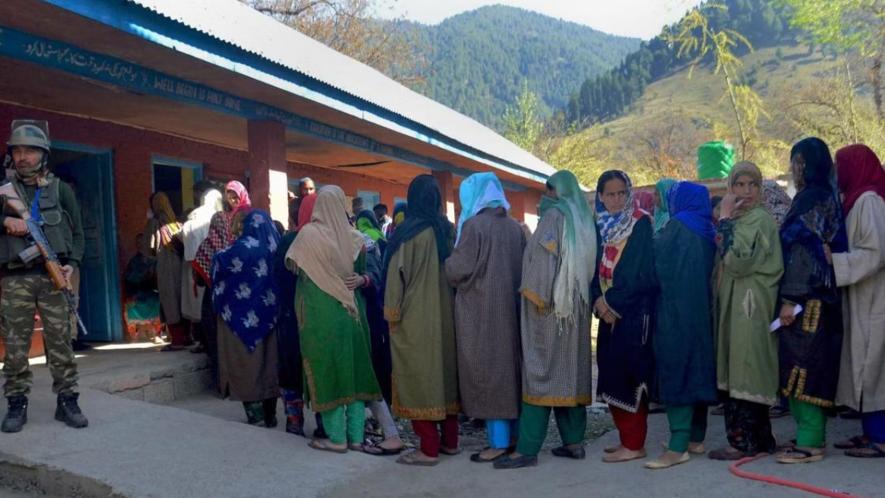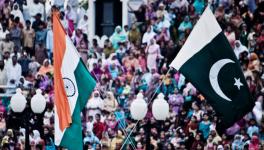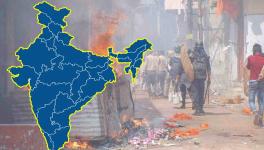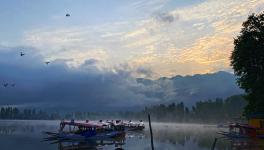In Election Season, a Reminder why J&K Also Must Hold Polls Soon

Image for representational purpose. Image Courtesy: PTI
On August 31, Solicitor General Tushar Mehta asserted in the Supreme Court that the central government is prepared to hold elections in Jammu and Kashmir anytime. His declaration may have raised hopes that normalcy and democratic representation will return to the erstwhile state soon, but the delay has continued, leaving Kashmiris perplexed.
Periodically conducting elections lies at the heart of democratic governance. Elections are the bedrock of popular democracy, giving citizens the power to choose representatives, express their will, and hold their government accountable. A democratic nation’s populace must have the chance to elect representatives in free and fair elections. However, in the Union Territory of Jammu and Kashmir, the last Assembly election was in 2014, making a fundamental democratic process conspicuously absent.
The Union Territory of Jammu and Kashmir holds a unique place in India’s political landscape. Given its complex history, elections in the region are not mere formalities. Further, the abrogation of Article 370 in 2019 fundamentally altered the political status of Jammu, Kashmir and Ladakh, bringing them under the direct governance of the central government.
These last few years, therefore, mark an extended hiatus from governance through democratic elections and raises serious questions about the rights of the people in the region. Democracy cannot thrive in a vacuum—it needs the active participation of citizens through elections to function effectively.
One often-cited reason for the delay in holding Assembly elections in Jammu and Kashmir is the security situation. While it is undeniable that the region has faced security challenges, it is crucial to ask whether security concerns should be allowed to indefinitely postpone critical democratic processes. Besides, the Centre has frequently said the security situation has improved since 2019—so, when it comes to holding elections, what makes the situation stagnant?
Citing security concerns to delay elections indefinitely is a flimsy excuse. It is essential to recognise that security challenges exist in many places in the world and that democracy often flourishes in adversity. To postpone elections on such grounds sends a troubling message about the government’s commitment to democratic principles. It risks alienating the people of Jammu and Kashmir and eroding their faith.
The longer elections are delayed, the greater the risk of alienating the people. When citizens are denied the opportunity to choose their leaders, it can create a sense of disenfranchisement and marginalisation.
As of writing this piece, almost 2,000 days have passed without an elected government in Jammu and Kashmir. The absence of an elected legislature has transformed the region into a de facto autocracy, where a few unelected individuals make decisions on behalf of the masses. This weakens the democratic fabric and perpetuates alienation. Elections, conversely, build and reinforce trust in democracy, especially when people see their votes translate into tangible change.
Delays would also weaken the bonds between the Centre and the people of Jammu and Kashmir. Elections, on the other hand, can foster unity between Jammu and Kashmir, with its diversity and unique history, by creating platforms where different voices are heard through democratic dialogue. A vibrant democracy integrates people and gives them a stake in the system.
Jammu and Kashmir, with its distinct identity and aspirations, needs to be integrated into India’s larger democratic framework, and elections will become a vital step in this process by allowing dialogue, representation, and peaceful expressions of diversity.
Nor are elections a luxury—they are a fundamental right and democratic duty, which is why it is time the Centre and the people of India recognise how crucial it is to hold elections in Jammu and Kashmir.
Dr Waseem Malla, a political analyst and Research Fellow at the International Centre for Peace Studies (ICPS) has argued that elections in Jammu and Kashmir have less to do with the prevailing security situation and more to do with the electoral calculations of the Bhartiya Janata Party. After all, the central government conducted elections in 1996 amidst large-scale insurgency.
In the current scenario, the BJP is still cautious of local political sentiments, especially in the Jammu Division, given the political resentment about the constitutional amendment of 2019. Undeniably, the BJP’s promises of development and re-balancing regional political affairs vis a vis Kashmir received support from many on the eve of the abrogation of Kashmir’s special status. But with the support fading fast, the BJP is perhaps sceptical that it could encash its post-abrogation governance of the region electorally. The concerns remain despite the delimitation exercise, which many believed was undertaken to ensure long-term support for the party.
Whatever the case, since India takes pride in calling itself the largest democracy, it cannot replace a government chosen by the people with a bureaucratic one. For, unlike bureaucrats, elected representatives are answerable to the public. They have to face the electorate every five years, while bureaucrats do not.
There is a significant disconnect between the current unpopular government (Lieutenant-Governor rule) and the people of Jammu and Kashmir. The sentiments and aspirations of people remain unaddressed, primarily due to their being denied access to their representatives. The unpopularity is rising, not least because it is almost nine years since the last Assembly election was held in Jammu and Kashmir.
Ever since the abrogation of Article 370 and the bifurcation of Jammu and Kashmir into two Union Territories, people have been enduring daily struggles due to bureaucratic hurdles. Unemployment is a pressing issue like never before, exacerbated by recruitment scams that have left many to suffer without relief. For all these reasons, Jammu and Kashmir need elections; the sooner, the better. After all, just like elections in any other part of the Union of India, democracy thrives in Jammu and Kashmir, too, when citizens can exercise their right to choose leaders to represent their interests, make decisions on their behalf, and shape the future of their region.
Nasir Khuehami is the national convenor of the J&K Students Association, pursuing an MA in Conflict Analysis and Peacebuilding from Jamia Millia Islamia, New Delhi. Ummar Jamal is the national general secretary of the J&K Students Association. He is pursuing his BA. LLB from the University of Kashmir. The views expressed are personal.
Get the latest reports & analysis with people's perspective on Protests, movements & deep analytical videos, discussions of the current affairs in your Telegram app. Subscribe to NewsClick's Telegram channel & get Real-Time updates on stories, as they get published on our website.
























